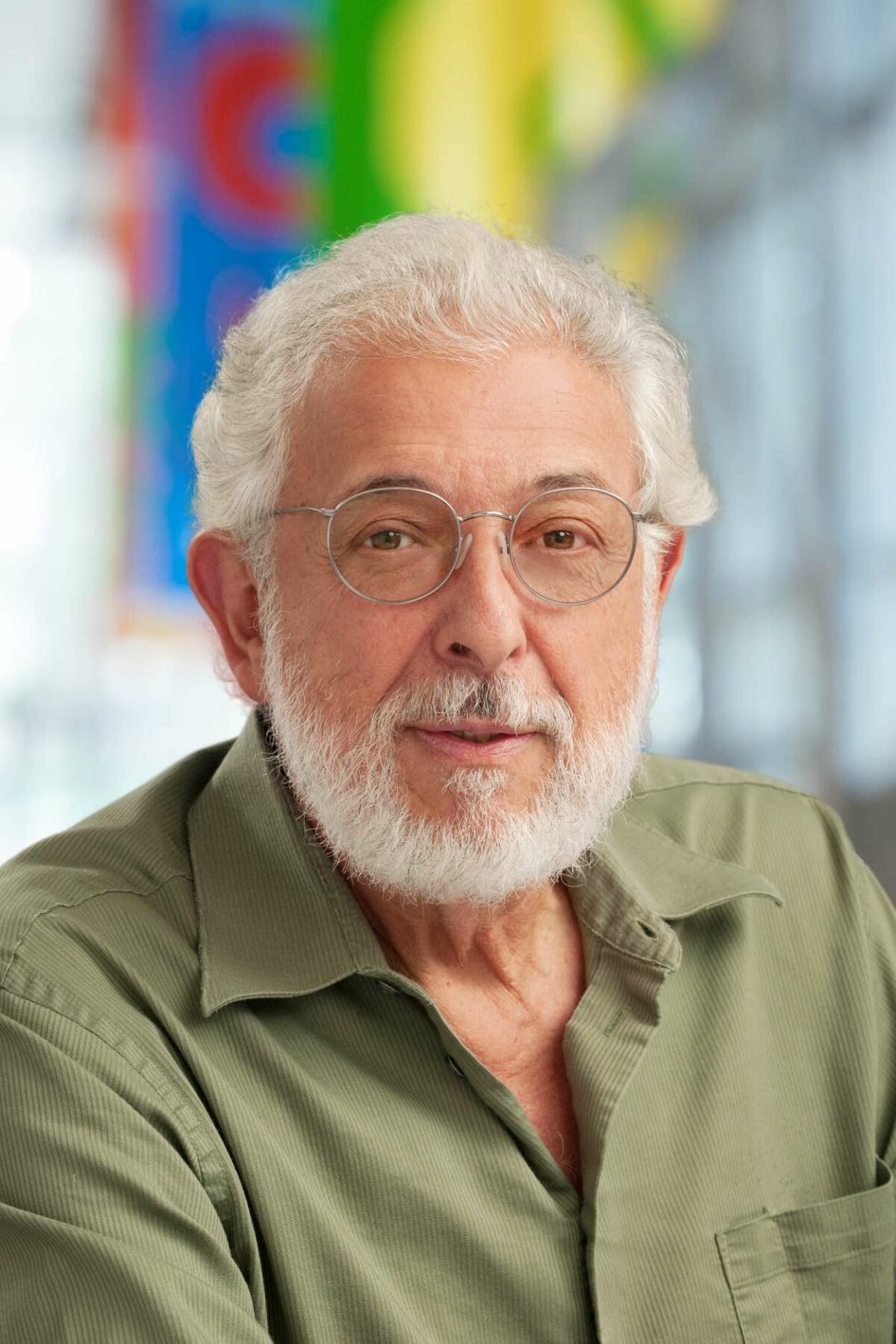In Memoriam: Distinguished Professor and Founding Dean of Biological Sciences Eduardo Macagno

Eminent scientist and academic leader Eduardo Macagno, who was a UC San Diego distinguished professor, founding dean of Biological Sciences and Qualcomm Institute (QI) affiliate, died on September 25.
Macagno built an esteemed career through significant contributions in multiple aspects of research, education, administration and mentorship. Joining UC San Diego in 2001 after nearly four decades at Columbia University, Macagno made an immediate impact through his leadership of Biological Sciences. After stepping down as dean in 2006, Macagno continued to make lasting contributions to the university through his service on several initiatives that spanned research and education. He also was a tireless champion for equity, diversity and inclusion, particularly through projects that created opportunities for underrepresented students across campus.
Born in San Juan, Argentina, in 1943, Macagno moved with his family to the United States in 1956. He received a bachelor’s degree in physics from the University of Iowa in 1963. Although he received his Ph.D. in physics from Columbia University in 1968, he switched fields to neurobiology as a postdoctoral researcher. He established his own lab and served on the Columbia faculty until 2000. While there, he rose in the university’s leadership to the positions of Chair of the Department of Biological Sciences, Associate Vice President for Research and Graduate Education and Dean of the Graduate School of Arts and Sciences.
A major contributor to the field of neural development and neural regeneration, Macagno’s research focused on the connections made between neurons and with their targets. He was a leader in the use of serial-section electron microscopy to study neuronal circuits, discovering “pioneer fibers” that form the first cells in the optic nerves of the water flea. A strong proponent of the use of simple model systems, he also made a significant impact with his foundational studies on the formation of the nervous system in the medicinal leech. Macagno was a fellow of the American Association for the Advancement of Science and an early recipient of a Javits Neuroscience Investigator Award. From 2008 to 2020, he served as the editor-in-chief of the journal Developmental Neurobiology.
Macagno also was instrumental in pioneering an interdisciplinary area at the intersection of architecture and neuroscience. In 2003 he co-founded the Academy of Neuroscience for Architecture. Through collaborations at UC San Diego, the Salk Institute and other institutions, Macagno investigated the impact of built environments on human physical and mental health. These efforts included involvement in the development of an innovative CAD (computer-aided design) software called CAVE-CAD to help make architectural design more efficient.
Macagno was selected as the first dean of Biological Sciences at UC San Diego due to his pioneering research contributions, ability to work across disciplines and reputation as a gifted administrator. Macagno leveraged his vast knowledge and experience to structure the young division for future growth and success. He helped lead several key faculty and administrative hires that enhanced the vibrant and multidisciplinary nature of Biological Sciences. Also, while Dean and subsequently, he actively promoted initiatives to enhance diversity, equity and inclusion throughout the community.
Macagno’s impact on education at UC San Diego included creative initiatives within and beyond the classroom. He served as a founding faculty member of Sixth College, contributing his extensive knowledge as a member of the college’s Executive Committee. According to Sixth College Provost Lakshmi Chilukuri, Macagno was one of the college’s most involved members and staunchest supporters.
Working with Professor Terry Gaasterland and Associate Professor Brenda Bloodgood, Macagno initiated Summer Transfer Ahead into Research Training (START), a summer mentoring program for underrepresented and first-generation transfer students. He later worked with Bloodgood and Associate Teaching Professor Ashley Juavinett in launching STARTneuro, a version of the program that focuses on underrepresented transfer students interested in neurosciences. Macagno also worked with Teaching Professor Stephanie Mel and several of their colleagues in creating BILD 60, a course that examines equity, diversity and inclusion issues under a biological sciences lens. The continuing success and value of STARTneuro and BILD 60 are excellent examples of Macagno’s enduring legacy for students at UC San Diego.
Macagno is survived by his wife and colleague Laura Wolszon; their children, Francesco and Lucia Macagno; his sister, Laura Macagno-Shang; his nieces, Camille and Natalie Montilino and Jamie Wolszon; and his nephews, Sidney Payne and Joshua Wolszon.
To honor his life and legacy, contributions are welcome to the Eduardo Macagno Scholarship fund, which will support STARTneuro students.
This piece was adapted from a School of Biological Sciences article by Mario Aguilera.